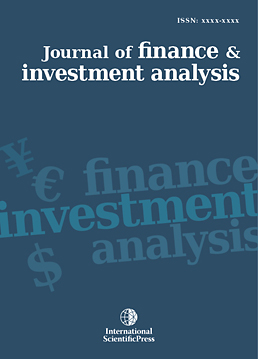Journal of Finance and Investment Analysis
Basel II Capital Requirements and Bank Behaviour: Empirical Evidence from Brazilian Banks
-
 [ Download ]
[ Download ]
- Times downloaded: 10793
-
Abstract
This paper provides an empirical investigation on the relationship between Basel II capital requirement and the risk-taking behaviour of banks in Brazil. Building on previous studies, two econometric models were employed: the simultaneous equations model of Shrieves and Dahl (1992), and the model for bank portfolio behaviour developed by Berger and Udell (1994). In our sample of Brazilian banks, we found sufficient evidence that Basel II induced banks to increase their capital adequacy ratio. Meanwhile, banks capital and risk-taken levels appeared to be negatively related, indicating that an increase in capital adequacy ratio did lead to a reduction in level of risk banks undertake. Besides, there was no empirical evidence of moral hazard in the way Brazilian banks behaved. Nonetheless, the study also pointed out that the implementation of Basel II had contributed to a reduction in domestic credit in Brazil, and thus, it might have an adverse effect on the country’s economy.
